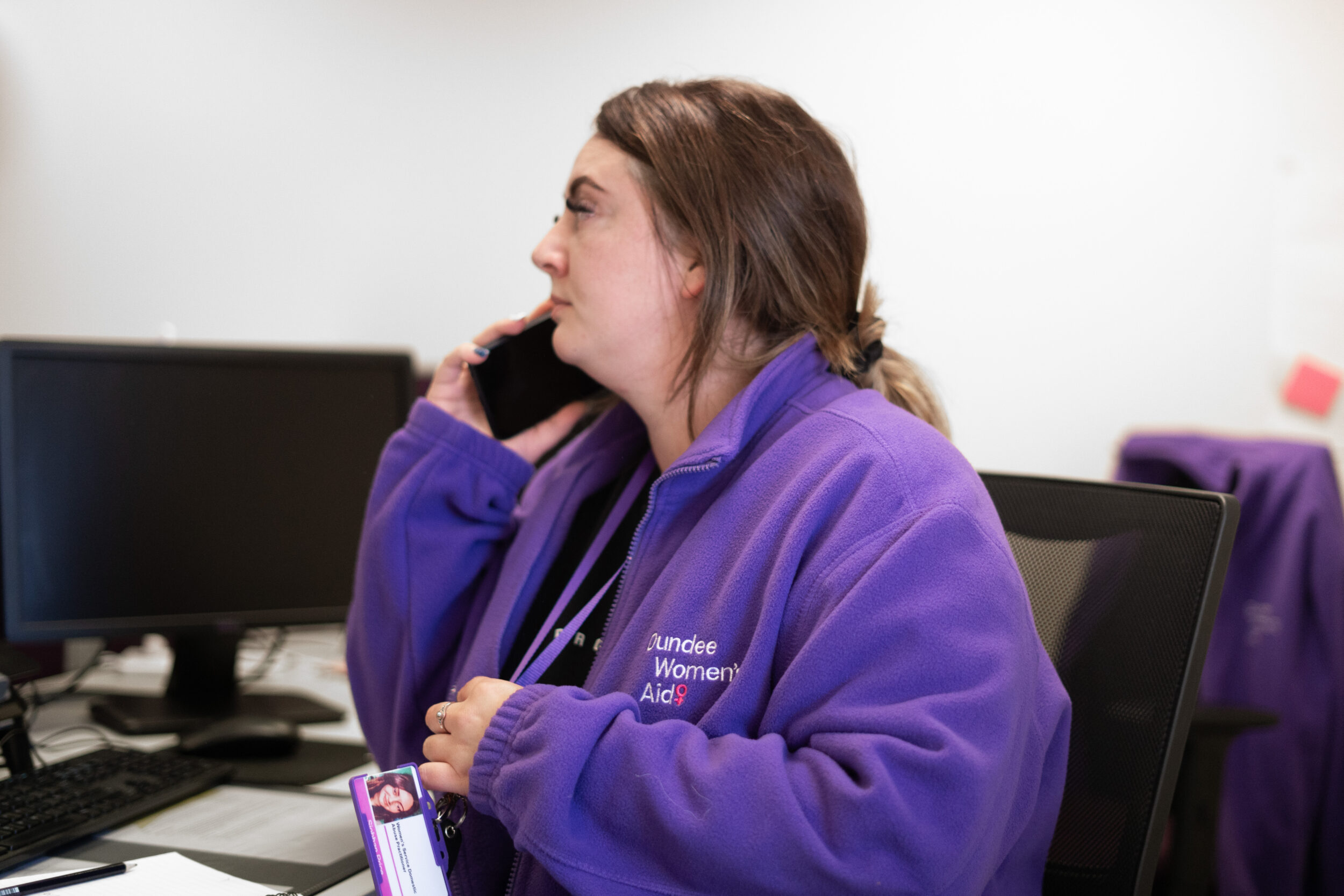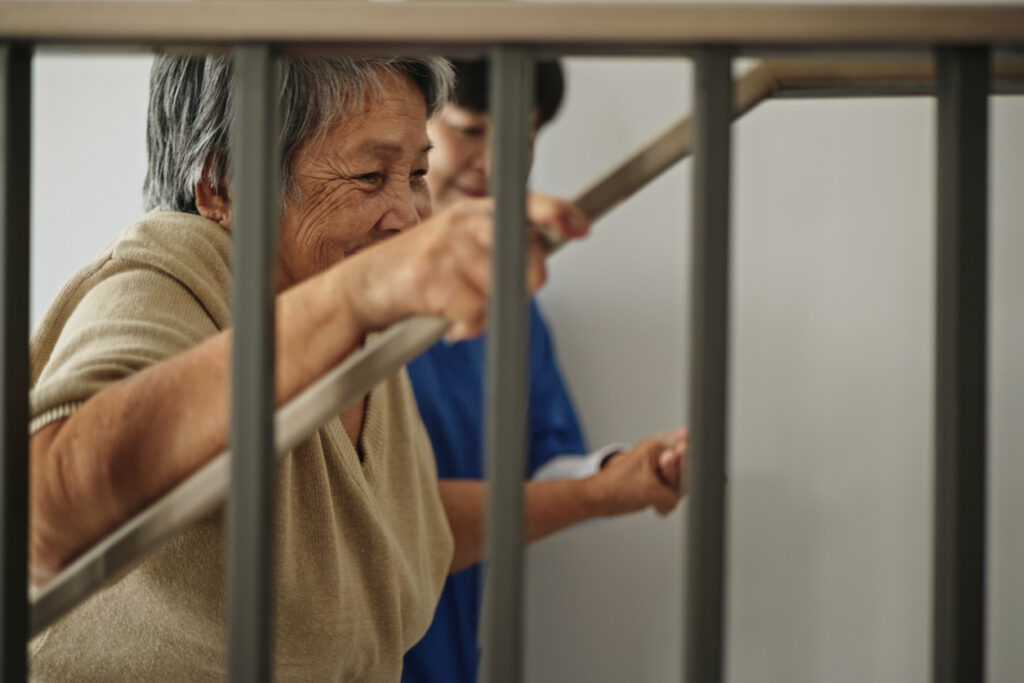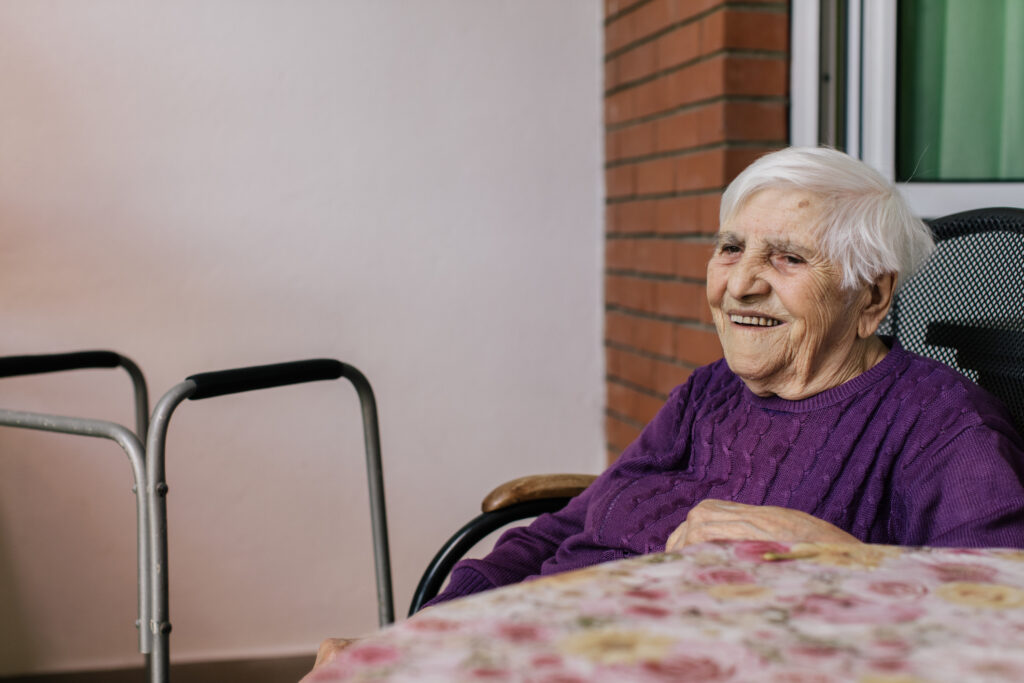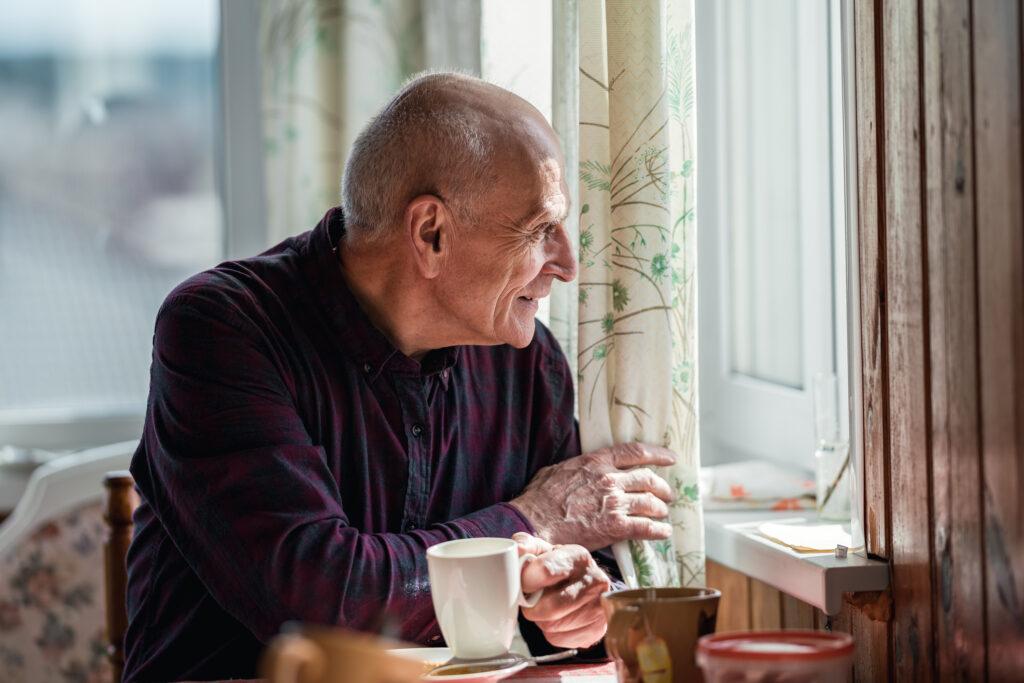
“Without a loan, we could have lost a sizable grant.”
Dundee Women’s Aid was offered substantial funding towards the cost of a new refuge. But as the deadline approached, CEO Mary Miller realised their fundraising efforts were going to fall short. So, she turned to Charity Bank…
Why is there such a need for Dundee Women’s Aid?
Dundee has the highest incidence of domestic abuse in Scotland. The need for our services is growing, especially since the pandemic. After the first lockdown, there was a 600% increase in requests for refuge spaces for women and children. We just don’t have enough properties to meet that demand.
Where do the women and children who you can’t house go?
They have a few options. They can go down the homeless route, present themselves to the local authority and be given temporary accommodation. We can also look at whether there are any refuge spaces available nationally, particularly if they want to move out of Dundee. However, sadly, a lot of women just stay where they are and go on our waiting list. I think that’s partly because of the double stigma of being a survivor of domestic abuse, and also being labelled homeless.
Is the shortage of properties why you decided to buy a four-bedroom refuge?
Most of our properties are two or three-bedroom. The bedrooms are mostly quite small, which has prevented us from taking woman with larger families. So, we bought the house to fill that gap. It also has a dining room, which could be used as a fifth bedroom if needs be.
The rest of your properties are leased from the local authority or housing associations. What made you decide to buy this one rather than lease a similar property?
We’ve been trying to lease a larger property for years, but social housing of that size is few and far between. So we thought, “Let’s try fundraising, and see if we can raise enough money to buy one.”
We started fundraising in the middle of the pandemic, which made things difficult. However, we were delighted to get offered a large pledge from a trust fund. When you get one pledge, it’s much easier to then get more, so we ended up with four or five significant pledges. We then launched an appeal to the general public and held various fundraising activities. We’ve had anywhere from a few hundred pounds coming in, to £2 a week. It melts my heart to think of people donating whatever they can, even if they’re on a low income themselves.
Could you have continued fundraising to raise the whole amount to buy a house rather than taking out a loan?
That first trust fund gave us a deadline of 12 months to raise the money. They very generously extended that for another year due to restrictions placed on fundraising due to the pandemic. However, the 24-month period was getting closer and I was getting really nervous as we still had a sizeable shortfall. That’s when we started looking into the option of a small loan, so that we could get the purchase over the finishing line. Without a loan, we could have lost the grant.
Do you think there are any extra benefits to owning the property rather than leasing it?
Yes, I think it gives the organisation some financial security. It also means that we’re responsible for the repairs and upkeep, so we can use our own trades people, rather than relying on the local authority or housing association. Sometimes, there’s a delay to getting work done, which can delay getting a woman into the property. We’ve always got women waiting, so it’s really important for us to minimise the amount of time that our refuges are unoccupied.
What made you choose Charity Bank for your loan?
Primarily, it was because it’s an ethical bank, which works closely with lots of charities. There was a bit of nervousness amongst the directors. This was our first loan and they were concerned in case we were biting off more than we could chew. Danny from Charity Bank came out to see us. He reassured us that if we were struggling to meet loan repayments for short periods of time, we didn’t have to worry about the type of aggressive action being taken that maybe a normal high street bank would take.
Did you have to persuade the directors that this was the right decision for Dundee Women’s Aid?
The board were probably 50/50, but having Danny answer their questions went a long way to reassuring them that this was the right decision, and that this was the right bank. It also helped that we’re a company limited by guarantee, so the directors aren’t personally liable (as long as they weren’t doing anything silly).
The loan repayments are more than covered by the housing benefit that we receive, and we manage 19 properties already, so it wasn’t going to place a huge demand on staff or costs. Plus, as we’d raised just shy of £200,000 ourselves, the worst-case scenario was that we’d have to sell the property to pay off the loan. So, it was a pretty safe bet.
How did you find the process of getting the loan?
It took a long time, and it was more complicated than buying a house for yourself, but the team at Charity Bank were there to guide us every step of the way. We could call them by Teams or send an email and they’d respond really quickly; our daft questions didn’t faze them! So, it was just a matter of ploughing through and getting them the information they needed.
What are the main challenges of the process?
I think it was getting the directors to sign the paperwork. They’re all volunteers and many work full time, so they’re busy people. We also hadn’t realised that we’d have to pay the bank’s solicitor’s fees, so that hadn’t been accounted for in our plan.
What’s next for Dundee Women’s Aid? Do you think you’ll look at buying more properties?
We’ll wait and see. The Scottish government commissioned a review into how the violence-against-women sector should be funded in Scotland. The report was published a few months ago and is currently being considered by the government. They’re going to come up with an action plan by December. There are some great recommendations. If they all happen, we’ll be delighted, but they would require an awful lot of extra funding. So, it’s really quite an uncertain time right now and we want to see the action plan before we make any more financial commitments.
If you need a loan for your not-for-profit organisation, please call Charity Bank on 01732 441919.
About Charity Bank
Charity Bank is the loans and savings bank owned by and committed to supporting the social sector. Since 2002, we have used our savers’ money to make more than 1400 loans totalling over £605m to housing, education, social care, community and other social purpose organisations.
Nothing in this article constitutes an invitation to engage in investment activity nor is it advice or a recommendation and professional advice should be taken before any course of action is pursued.


